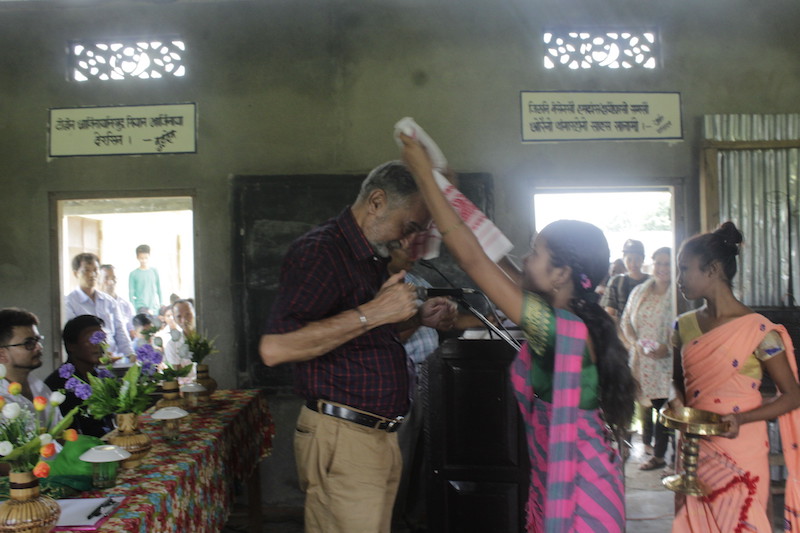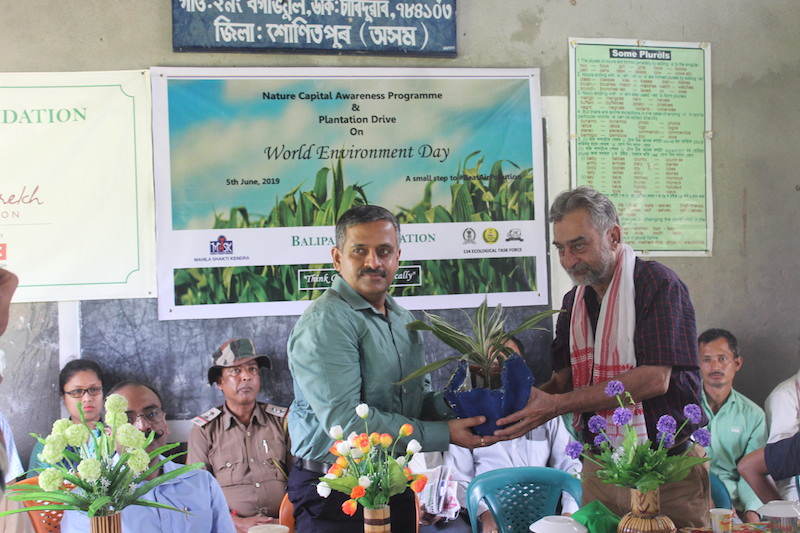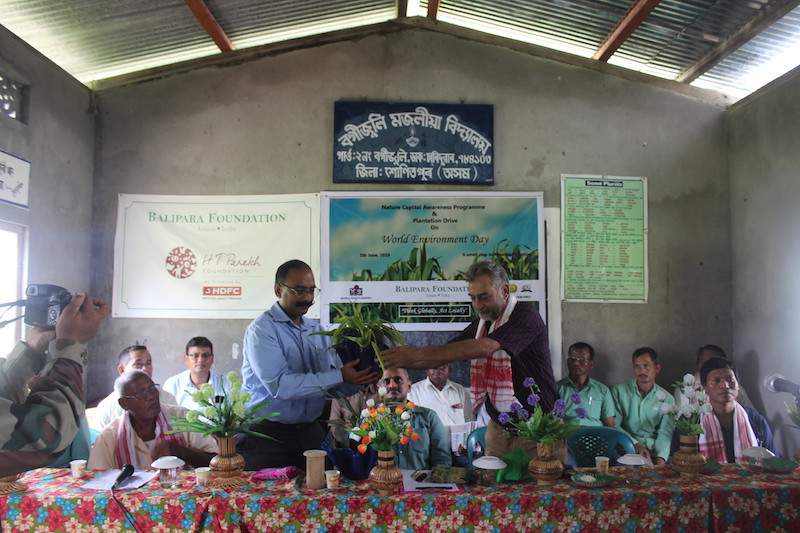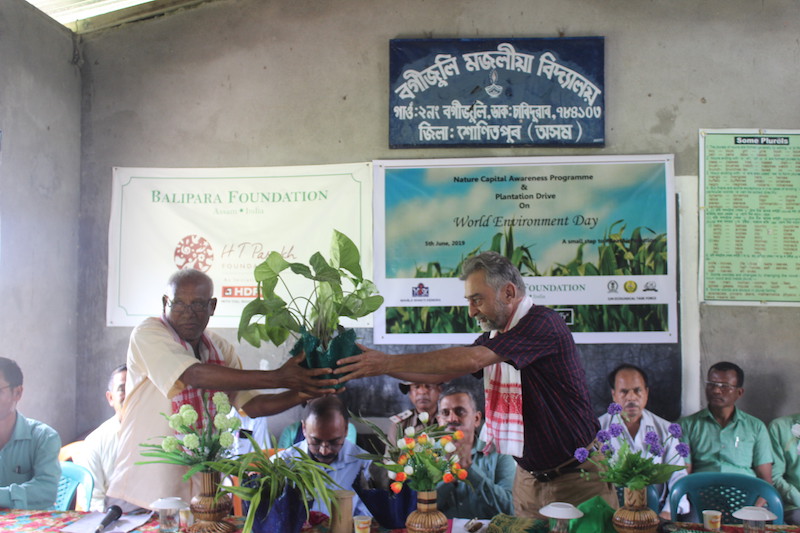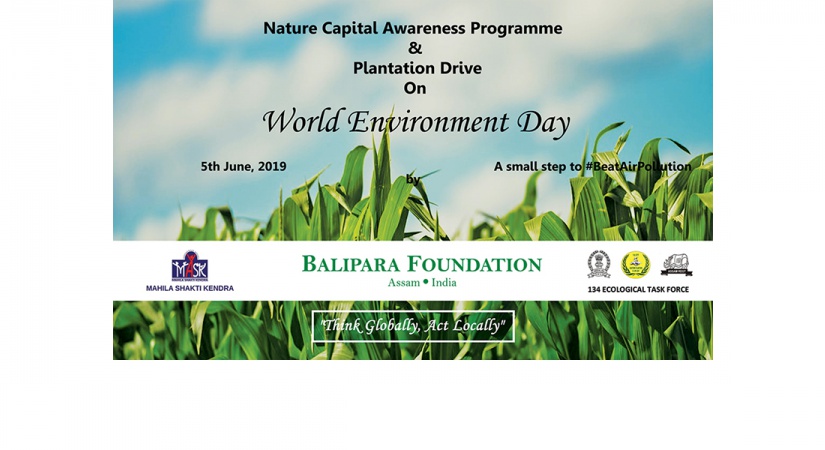About
The programme was conducted among school children and village folk, thereby planting and distributing 3000 saplings and seed balls among them In 1974, the United Nations had flagged off the first World Environment Day on 5 th June as a ‘people’s day’ for encouraging environmental awareness and action for protection. Every year, this day is celebrated around a theme to address urgent environmental issues. The theme for 2019 is “Air pollution”.
The Eastern Himalayan Naturenomics™ School had conducted a ‘Nature Capital Awareness Programme and Plantation Drive’, in collaboration with the Eastern Planters, 134 Eco Task Force (Sonitpur) and Mahila Shakti Kendra (MASK, Balipara) at Bogijuli High School (Chariduar) on the 5 th of June, 2019. The programme had an impressive gathering of more than 350 people which included dignitaries, school children and village folk. Among the invited guests were Col. A. Prasad (Commanding Officer, 134 Eco Task Force), Major R. Gadkary (Project Officer, 134 Eco Task Force), Subedar Major M. Teron, Naib Subedar N.S. Singha, Mr. B. Borah (Deputy Forest Ranger, Chariduar Range) and Mr. D. Kalita (Forester, Chariduar Range). The guests were joined by the Village Headman, Principals of Bogijuli Middle School and High School, respectively, and members of Balipara Foundation and MASK.
The custodian of Eastern Himalayan Naturenomics™ School had inaugurated the day’s programme with a brief
explanation on the history and significance of the day, the theme for the current year and how planting trees is the ultimate solution to improving air quality and stopping environmental degradation. The Commanding Officer of Eastern Planters, 134 Eco Task Force, had further elaborated on the benefits of planting trees, which not only purifies the air by absorbing and storing carbon-dioxide from the atmosphere, but also provide food, medicine, timber and shade. He urged each student to take home 5 seed balls and take care of the germinated saplings as part of the family. Naib Subedar Singha had later explained about seed balls to the children. This was followed by speeches from the personnel of the Forest Department, the Headman, the Principals and teachers.
The programme ended with planting saplings within the school premises, as well as distribution of 500 saplings
and 1500 seed balls among the children and village folk by the staff of 134 Eco Task Force.
The members of Balipara Foundation and MASK had also carried out another awareness programme and
distribution of 1000 saplings among the women-folk of Shantipur and Nijumpur Bodo villages at Bhalokpong.
Impacts of the event:
> Apart from learning how plants help in battling air pollution, the children were introduced to the relatively
new concept of ‘seed balls’
> A total of 3000 saplings and seed balls were distributed
